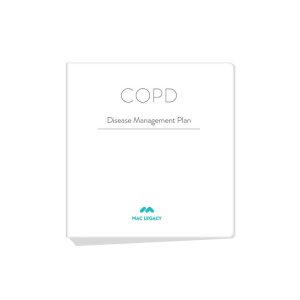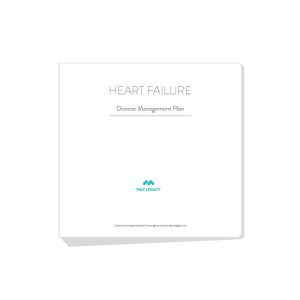Introduction: In the evolving landscape of healthcare, home health agencies face increasing demands to provide high-quality care to patients with chronic diseases and complex medical needs. Seeking disease management certification can serve as a catalyst for home health agencies to improve the quality of their services while gaining a competitive marketing edge. In this blog…
Introduction:
In the evolving landscape of healthcare, home health agencies face increasing demands to provide high-quality care to patients with chronic diseases and complex medical needs. Seeking disease management certification can serve as a catalyst for home health agencies to improve the quality of their services while gaining a competitive marketing edge. In this blog post, we will explore how disease management certification can help home health agencies enhance their quality of care and differentiate themselves in the market.
Elevating Quality of Care:
Disease management certification equips home health agencies with the tools, knowledge, and best practices needed to deliver exceptional care. Certification programs provide comprehensive training on disease-specific protocols, evidence-based interventions, and care planning strategies. By implementing these specialized approaches, agencies can improve patient outcomes, reduce hospital readmissions, and enhance overall quality of care.
Patient-Centered Approach:
Disease management certification emphasizes a patient-centered care model. Home health agencies can learn techniques to assess patients comprehensively, develop personalized care plans, and involve patients in their own care decisions. By providing tailored care that considers patients’ preferences, goals, and social factors, agencies can enhance patient satisfaction and engagement. This patient-centric approach differentiates agencies from competitors and boosts their marketing appeal.
Efficient Care Coordination:
Disease management certification emphasizes effective interdisciplinary collaboration and care coordination. Home health agencies learn strategies to facilitate seamless communication among healthcare providers, specialists, and caregivers involved in a patient’s care. Coordinated care leads to better continuity, reduces fragmentation, and improves patient outcomes. Demonstrating robust care coordination capabilities enhances an agency’s reputation and marketing efforts.
Outcome Measurement and Improvement:
Certification programs emphasize the importance of outcome measurement and quality improvement initiatives. Home health agencies learn to track key performance indicators, gather meaningful data, and analyze outcomes. By implementing continuous quality improvement processes, agencies can identify areas for enhancement and refine their care strategies. Demonstrating a commitment to data-driven decision-making enhances an agency’s credibility and marketing edge.
Enhanced Staff Competencies:
Disease management certification programs provide ongoing education and professional development opportunities for home health agency staff. By investing in staff training and development, agencies can enhance the skills and competencies of their workforce. Certified staff members possess the expertise to manage complex diseases, implement evidence-based practices, and provide specialized care. Marketing this expertise attracts patients seeking knowledgeable and skilled professionals.
Promoting Agency Differentiation:
Disease management certification enables home health agencies to differentiate themselves in the market. Agencies can highlight their certified staff, specialized care protocols, and commitment to quality outcomes in their marketing efforts. By showcasing their expertise, agencies can position themselves as trusted partners in disease management and attract clients who prioritize specialized care and improved outcomes.
The Certification Process
CHAP offers certification in six disease processes-Heart failure, COPD, Diabetes, Dementia, Stroke Recovery, and Wound Care. Certification can be achieved in four steps.
- Read and understand the standards: each disease state has standards and guidance written by industry experts with input from physicians with a specialty in each disease state.
- Adapt or build your Program: the agency will purchase the specific disease program standards and begin to adapt an existing program or build a new program from the ground up. The standards provide the agency with a framework from which to adapt/build your program. There are CHAP–
- Submit readiness and complete the survey process: Once the program is built and structured and staff is trained, and in place, the agency will submit readiness for the survey process. This process is done virtually, and policies and documents will be uploaded for review by a Disease Program Surveyor. Once the review is complete, the agency will receive a report with findings, and successful agencies will move on to the interview process. After all interviews are complete and all standards are met, the agency will receive a one-year certification. If deficiencies with the initial review/interview are found, corrections and resubmissions are allowed. Each agency location is required to go through this process to achieve certification.
- Market your disease-certified program: once the agency has achieved certification, it will receive a marketing it that includes:
- A seal of certification that can be included in marketing the program
- Press release and media templates to use to alert your community of your achievement
- Approved and suggested verbiage to be used to describe your program
- Marketing plan templates, including referral partnership plan and sales messaging templates
Conclusion:
Seeking disease management certification empowers home health agencies to enhance the quality of care they provide while gaining a competitive marketing edge. By adopting evidence-based practices, implementing patient-centered approaches, and emphasizing interdisciplinary collaboration, agencies can differentiate themselves in a crowded marketplace. Disease management certification demonstrates an agency’s commitment to excellence, patient outcomes, and continuous quality improvement. By integrating certification-related messaging into their marketing strategies, agencies can attract clients seeking specialized care and foster long-term success in the home health industry.
-
 COPD Disease Management Plan$400.00
COPD Disease Management Plan$400.00 -
 Heart Failure Disease Management Plan$400.00
Heart Failure Disease Management Plan$400.00
